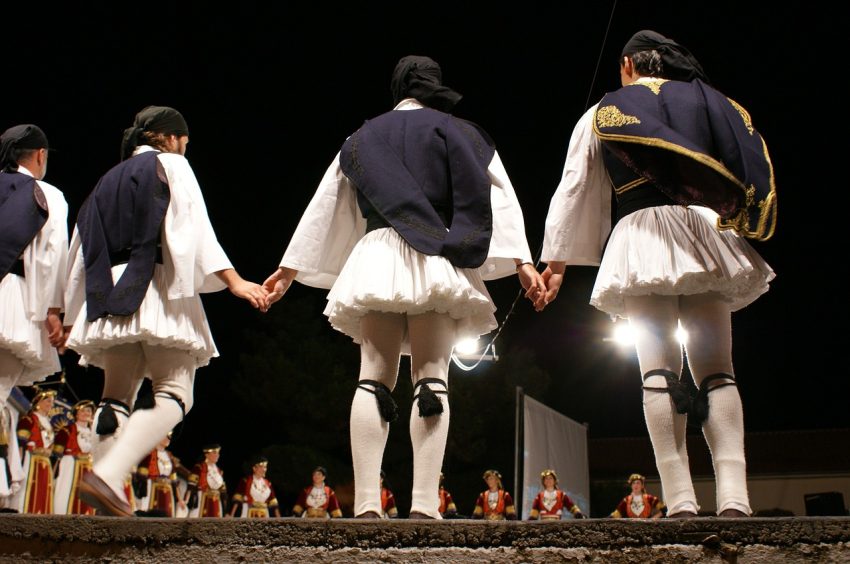Today’s blog post is dedicated to a very intriguing topic: that of the people thanks to whose efforts folk music advanced and evolved. Unlike what many of you expect, we are not going to talk about folk musicians today. These renowned artists deserve many articles of their own, so you can expect to read tons of info on them on our blog later on.
To recap, one of the figures that we would like to focus on right now is that of the most prominent folk music collector, who helped record and preserve a significant part of today’s Western folklore heritage. The rest are a bunch of famous classic musicians who drew on folk music in their works and thus made it even more popular in front of other audiences.
So, let’s not waste any more time and learn more about these amazing people!
Francis James Child: Recording Folk Music Legacy
Francis James Child is one of the most notable names in advancing the legacy of folklore. This renowned American scholar and educator collected in the 19th century the words of over 300 English and Scottish ballads known today as the “Child Ballads.” While Child was primarily interested in the literary aspect of the ballads rather than the music itself, he still became a crucial contributor to the study of English-language folk music.
A mathematician turned folk music researcher
Child’s biography is extremely interesting and deserves a separate article, but do allow us to indulge you with a small part of it here. The scholar’s early years did in no way suggest that he would one day become a renowned folklorist who would contribute immensely to the development of folk music.
Upon finishing high school with flying colors, Child took up the position of a tutor in mathematics at Harvard University. He then moved on to a tutorship in political economy, history, and English literature. From then on, his career took off.
Child’s most notable success came in 1876 when he was offered a research professorship at Johns Hopkins University in Baltimore, which was just established at the time. What is more, it was the first American higher education institution to be based on the German research model authored by Wilhelm von Humboldt.
However, Child was a valuable asset to Harvard. In an attempt to retain him at the university, then-president Charles William Eliot endowed him with the title “Professor of English.” Thus, Child remained at Harvard and devoted his time to the research and study of British vernacular ballads.
It is fascinating to note how Child viewed folk music ballads. In his opinion, they came from a “more democratic time in the past,” when society was less severely restricted to classes. It was only back then when the “true voice” of people could be heard, Child proclaimed.
Contrary to Marxist views, however, Child perceived “the people” to comprise all society strata regardless of their education, social standing, affluence, etc. The more Child studied English and Scottish ballads, the more he became captivated by the beauty of folk music. That is why at a later stage he also extended his scholarly work in folk music to study ballads in other languages.
The Inventive Composers: Promoting Folk Music through Other Genres
As we have discussed many times on this blog, folk music has found its rightful place not only as a stand-alone genre but also as a source of inspiration for producing works in other genres. Below we have a couple of examples of famous composers who have used folk music in their works. Through uniting folklore with the classic genre they have achieved a long-lasting, mesmerizing effect and have made folk music more popular to larger audiences. Let’s see who they are!
Antonín Dvořák
The famous Czech composer Antonín Dvořák extensively used elements from the music of his native Bohemia and also Moravia to incorporate into the chamber and symphonic works he created. Thus, he achieved a truly beautiful symbiosis between folk tunes and classical music.
Here is a signature composition drawing on folk music by Dvořák:
Béla Bartók
Béla Bartók is one of the most influential composers of the 20th century. He is also considered to be an ethnomusicologist due to his extensive interest in folk music. The pianist and composer successfully used elements from Hungarian folk music in his classical pieces. In his quest for inspiration, he traveled around his home country to collect hundreds of folk songs.
Ralph Vaughan Williams
The great English composer Ralph Vaughan Williams is another influential figure in promoting folk music. Starting in 1903, he collected more than 800 folk tunes, mostly thanks to his travels to 21 English counties. Vaughan Williams mostly recorded the songs by hand, although he occasionally also used a phonograph.
His journeys took him ten years but eventually led to great success. His endeavors made him a prominent figure in the First English Folk Song Revival.
Other composers who promoted folk music
Some other composers whose work has been paramount to advancing the legacy of folk music include:
- Hubert Parry
- Charles Villiers Stanford
- Gerald Finzi
- Arthur Butterworth
- Malcolm Arnold
- Zoltán Kodály

